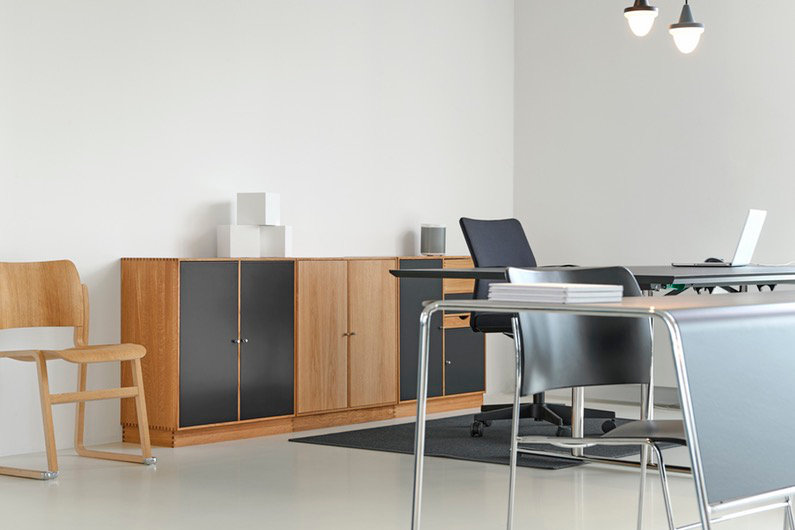Serviced offices provide a solution to this problem, allowing businesses of any size to establish their presence in the capital. In fact, the number of businesses using serviced offices in London has more than tripled in recent years; more than any other region in the UK. So, how do you find the right office?
With a staggering 100 million businesses launched around the world each year, according to figures from GEM Global Report. That equates to 11,000 new businesses every hour and three every second.
With this entrepreneurial boom comes increased competition for office space. Finding a conventional office space can be difficult, especially for new and emerging businesses that often don’t have the budget to support lavish ventures.

To help you understand how a serviced office could benefit your business, we’ve asked office experts for their advice on a selection of frequently asked questions:
What is a serviced office and what does it include?
A serviced office is an office space or office building that is fully equipped and managed by a facility management company. Flexible and simple rental contracts offer inclusive rent, business rates, maintenance, security and telecommunications infrastructure.
Ideal for startups and small or even large organisations, serviced offices also offer business services such as reprographics and secretarial support with plenty of scope for ‘add-ons’ or pay-per-use facilities. They may also provide shared catering amenities with other companies.
As Easy Offices; who works with many major serviced office providers and lists a breadth of serviced offices in London, notes: serviced offices range in both styles, scale and extras, meaning you don’t have to buy into any add-ons you won’t use.
Why would a company choose a serviced office?
According to the experts at Hubble, one of the main draws of the serviced office is the reduced risk compared to traditional office spaces: “While traditional office space can provide freedom, they also require a huge deposit and a long-term contract.” While there are millions of new business each year, not all will last. Office space then can land business owners in serious debt if their new venture doesn’t pan out.
Serviced offices provide a solution to this problem, allowing businesses of any size to establish their presence in the city with reduced risk and low initial costs. Renewable rental contracts starting from just a month are not only cost efficient, but provide temporary or long-term working environments without interrupting the flow of business.
What do I need to consider when choosing a serviced office?
It’s not just about determining your present needs, but thinking about where your company will be going in the future. Many companies consider this last. But it’s actually one of the most important decisions you need to make.
Companies planning to add staff also need to account for the additional space that they will need within the timeframes of expansion.So decide what you need, not just immediately, but also looking forward so that any potential expansion plans aren’t restricted by your office space solution.
Thankfully, most serviced office spaces can be expanded or reduced with demand, so change can be easily accommodated.
What information will a serviced office provider need from an initial enquiry?
Once you’ve established your needs, you’ll need to communicate these to your provider.
If you’re a digital design agency, for example, make sure your provider is aware of your technical and internet speed requirements. If you conduct a large amount of face-to-face meetings, be sure to choose an office that is accessible and provides meeting rooms and a reception service. You should also discuss what kind of impression you want to give.

How are serviced office prices (typically) calculated?
In the first instance, the bills for serviced offices are all-inclusive. Costs are transparent and include all building, heating and lighting, reception, security, maintenance, redecoration, refurbishment and cleaning charges. This also includes business rates.
Rates are determined by location, quality, location within the office or business centre, number of windows, number of desks and further extra services. According to Move Hut, deposits are generally equivalent to one or two months’ rent.
Serviced offices provide certainty about your outgoings, combined with value for money and flexibility. This solid base will help you build an efficient, successful business.
If you’re unsure about your outgoings, contact the experts at Gerald Eve, who have saved clients over £2.2 billion in business outgoings since 2010.
How secure is a serviced office?
What’s great about many serviced offices is that security features like CCTV and private car parking are typically included in the monthly rent. Leo offices, for example, have private parking and CCTV cameras to ensure optimal security at all times.
And most serviced offices are open and monitored by trained facility management staff 24/7, allowing you to come and go whenever you please.
Can serviced offices be decorated to fit in with brand image?
The opportunities for customisation and showcasing your business identity can really depend on the flexibility of your provider. Typically, office space and furniture must remain unbranded; however, some operators will customise the layout upon request.
There are plenty of alternatives too: Smithfield’s guide suggests posters and wall hangings featuring your logo and brand, as well as screens, computer screensavers and even window decals. Embracing nature and bringing in lots of greenery can help your business stand out too.
Talk to your provider to see how willing they are for you to scope out a redesign. The majority will be fine with superficial changes.


